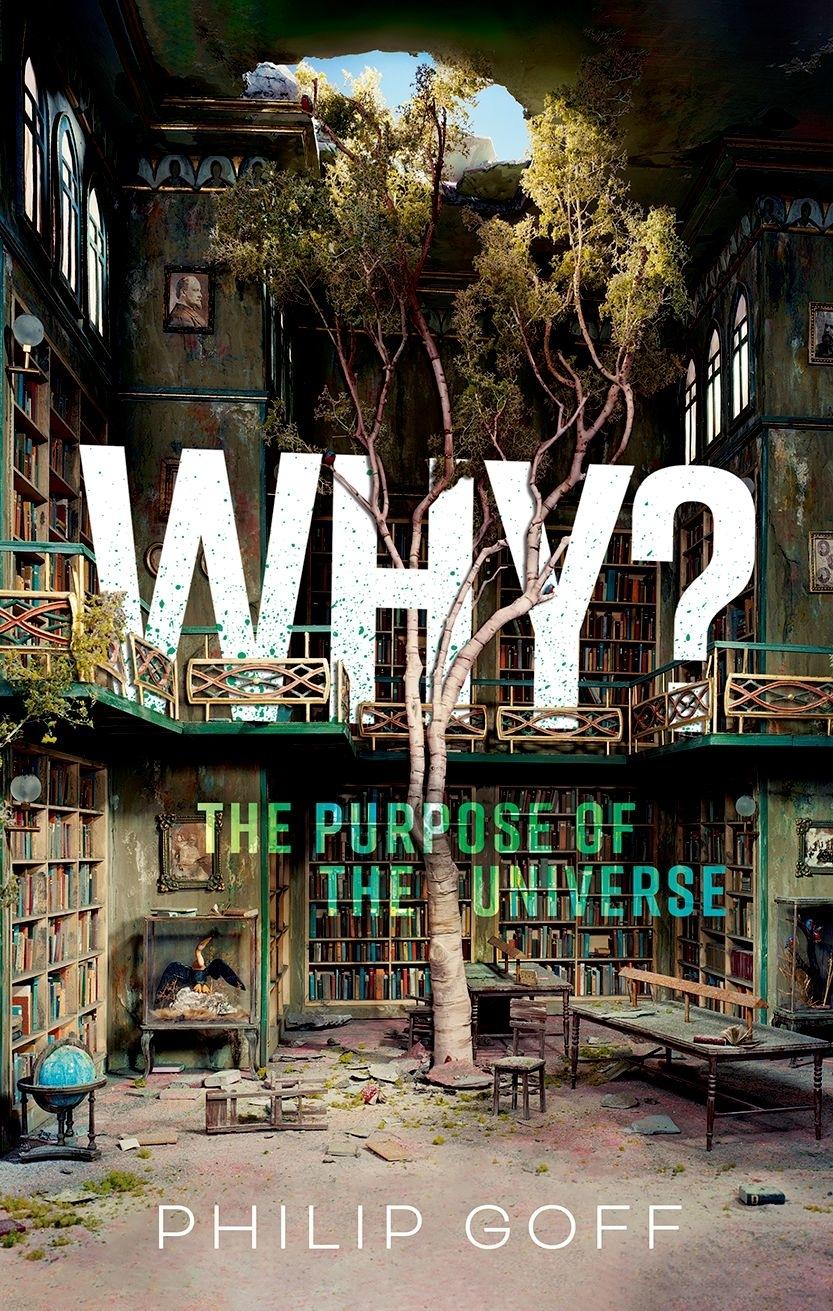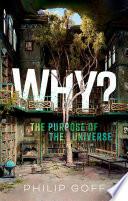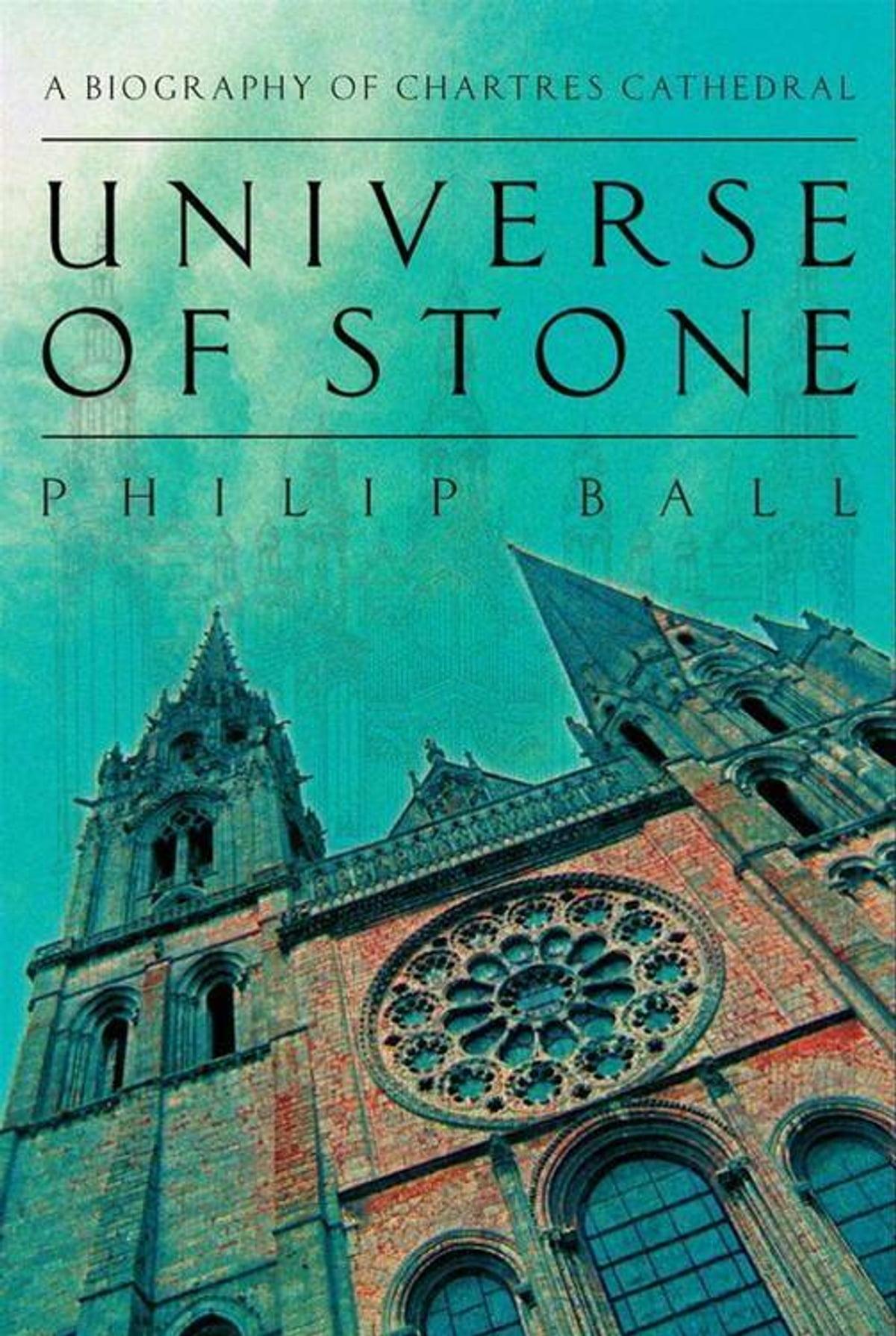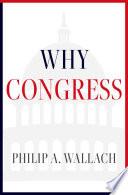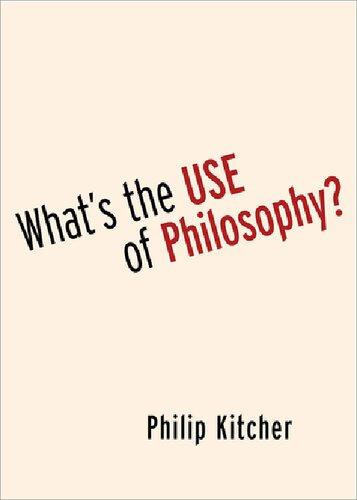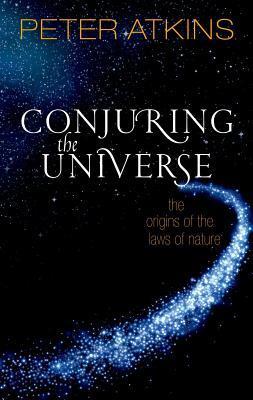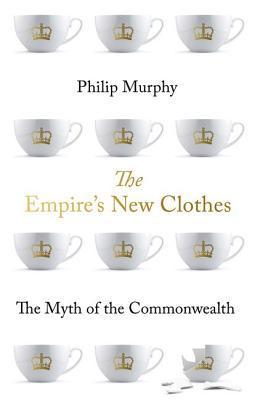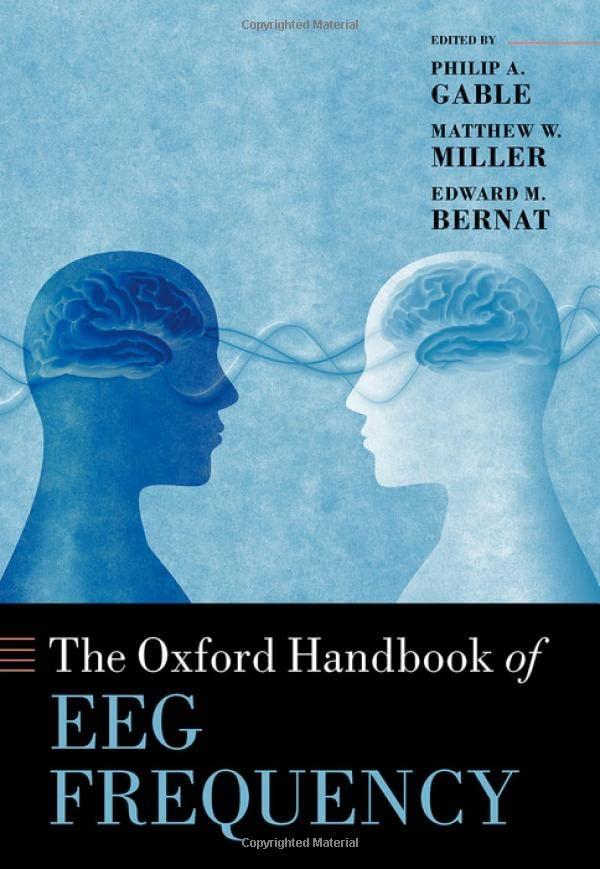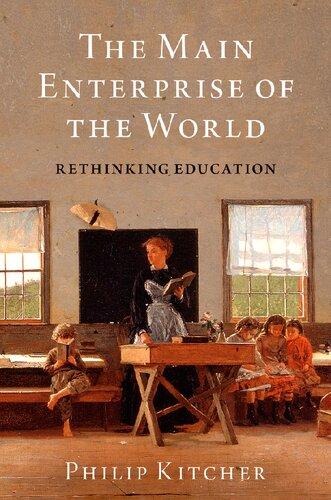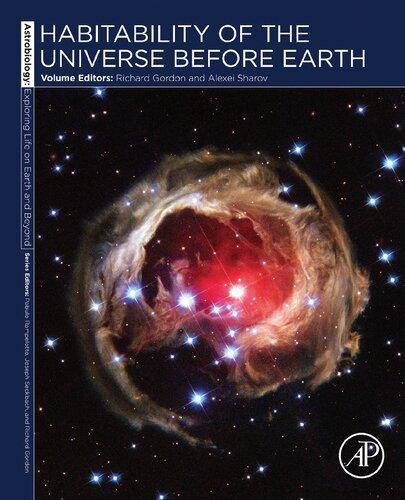Visit to download the full and correct content document: https://ebookmass.com/product/why-the-purpose-of-the-universe-philip-goff/
More products digital (pdf, epub, mobi) instant download maybe you interests ...
Why? The Purpose of the Universe 1st Edition Philip Goff
https://ebookmass.com/product/why-the-purpose-of-theuniverse-1st-edition-philip-goff/
Universe of Stone Philip Ball
https://ebookmass.com/product/universe-of-stone-philip-ball/
Why Congress Philip A. Wallach
https://ebookmass.com/product/why-congress-philip-a-wallach/
What's the Use of Philosophy? Philip Kitcher
https://ebookmass.com/product/whats-the-use-of-philosophy-philipkitcher/
Conjuring the Universe: The Origins of the Laws of Nature Peter
Atkins
https://ebookmass.com/product/conjuring-the-universe-the-originsof-the-laws-of-nature-peter-atkins/
The Empire’s New Clothes: The Myth of the Commonwealth
Philip Murphy
https://ebookmass.com/product/the-empires-new-clothes-the-mythof-the-commonwealth-philip-murphy/
The Oxford Handbook of EEG Frequency Philip Gable
https://ebookmass.com/product/the-oxford-handbook-of-eegfrequency-philip-gable/
The Main Enterprise of the World: Rethinking Education
Philip Kitcher
https://ebookmass.com/product/the-main-enterprise-of-the-worldrethinking-education-philip-kitcher/
Habitability of the Universe before Earth Richard
Gordon
https://ebookmass.com/product/habitability-of-the-universebefore-earth-richard-gordon/
Why?
It takes a sort of cosmic chutzpah to announce that your book is going to explain the purpose of the universe, and that predisposed me in its favour before I even began to read the text. But what I enjoyed most was the author’s calm and level-headed approach to that fundamental question: Why? I suppose it’s the question most young people begin with when they start to develop intellectual curiosity, as well as being the source of every system of religion and of science as well. Philip Goff explains that ‘purpose’ is not some emotional human need with little ultimate importance, but a quality that seems to be built into the very nature of things. It’s nothing less than thrilling to follow his argument, and to regain that sense of connectedness that’s so important not just to our wellbeing, but to our very survival.
Philip Pullman
This book is a tour de force. If you have ever wondered what the point is in living, whether the universe itself has any purpose (and if it does, whether that is best explained by the existence of God), why the universe exists at all for that matter, what the nature of consciousness is and how it fits into the universe as a whole, this is the book for you. Written in an engaging and easy to follow style, Goff presents a highly original, unified, and thought-provoking world view. It is rare to read anything that makes one seriously question one’s basic assumptions about reality. Goff’s book does just that. The result is something head spinning. I cannot recommend it highly enough.
Michael Tye Professor of Philosophy, The University of Texas at Austin
Am I here by accident? Is there a purpose? This is contentious territory in science and philosophy. Goff offers a lucid and riveting account of key ideas, data, and theories. He then, with a rare audacity, blazes new trails. It is fascinating terrain to explore, and Goff proves an expert and genial guide.
Donald Hoffman, Professor of Cognitive Science, University of California, Irvine
The best metaphysical pictures help us fulfill three aims: give us a sense of the world and how we as human beings fit within it, provide an ethical guide, and help us make some peace with our condition. Philip Goff’s brilliant new book Why? The Purpose of the Universe does all three by making a compelling case for teleological cosmopsychism. With this unique position that is neither God nor atheism, Goff gives us a glimpse of the immense creative potential of the universe. He outlines an attractive picture of spiritual belonging and practice in a godless world that is far from nihilistic.
Helen De Cruz, Danforth Chair in the Humanities, Saint Louis University
It might sound surprising, but the progress of physics, astronomy and cosmology in recent decades has raised important questions about the meaning and purpose in the universe, and of the universe. “Nature has been kinder to us than we had any right to expect”, wrote Freeman Dyson in 1971, “it almost seems as if the universe must in some sense have known that we were coming”. So, what now? Philip Goff has provided a discussion of these important
issues that is informed, accessible, original and entertaining. This is a book worth reading, and worth thinking hard about.
Luke Barnes, Lecturer in Astronomy and Cosmology, Western Sydney University
Why? is a terrific book. For a work in philosophy, it is unusually fun to read. Goff clearly has a gift for making rigorous philosophy accessible to a broad audience. Part of his genius is the way he weaves his main arguments into a narrative about his own intellectual journey.
Paul Draper, Professor of Philosophy, Purdue University
Why? is simultaneously accessible and profound, comprehensible to the general reader and full of novel ideas sure to challenge professional philosophers. Goff offers an intriguingly weird vision of the cosmos, neither atheistic nor orthodox, pushing beyond the boundaries of both ordinary scientific thinking and ordinary religious apologetics.
Eric Schwitzgebel, Professor of Philosophy, University of California, Riverside
A brilliant book! Goff takes us to the edges of physics and philosophy to make a compelling case for cosmic purpose. The presentation is clear, innovative, and provocative. True to form, Goff’s ideas are not anchored to convention or tradition, but he instead lights a torch on an original path of discovery. I came away feeling that Goff’s work contributes to the purpose of the universe in a profound and beautiful way. I highly recommend this book to anyone interested in the big question of why we are here and what life might be about.
Josh Rasmussen, Associate Professor of Philosophy, Azusa Pacific University
What’s the meaning of life? Raw science tells us we live in an uncaring universe, devoid of purpose and oblivious to the wants and needs of humans. Or does it? In this new book, Goff explores purpose in the cosmos, not a purpose rooted in religion, but in a conscious fabric of the universe itself. Whilst Goff and I have argued over the implications of cosmological fine-tuning and the statistics of typing monkeys, the contents will certainly make you think about life and its meaning.
Geraint Lewis
, Professor of Astrophysics, Sydney Institute for Astronomy, The University of Sydney
How to Read This Book
Academic philosophers tend to talk to themselves. They write complicated, jargon-filled books that are inaccessible to anyone who doesn’t have a PhD in philosophy. I’ve written one of them myself, so I should know. I wanted this book to be both a significant contribution to philosophy andaccessible to a broader audience. It’s a hard act to pull off. Academic philosophers like myself are trained to construct watertight arguments, which means covering all possible objections. This leaves me with a difficult dilemma. On the one hand, if I don’t cover all objections, other philosophers will think my arguments are rubbish. On the other hand, it’s hard to cover all objections without making the book dense and inaccessible to the general reader.
I’ve tried to cover both bases by dividing most of chapters into a more accessible first section, followed by a ‘Digging Deeper’ second section. Sometimes the ‘Digging Deeper’ section consists of responses to objections, other times it delves more deeply into the topic. In either case, those wanting the big picture without some of the challenging details, at least on the first read through, can avoid the ‘Digging Deeper’ sections without loss of continuity. Perhaps you might want to return to some of the complexities after reaching the end, to get a deeper understanding of the claims and arguments of the book. Alternately, you might want to flick through the ‘Digging Deeper’ sections as you go along to see if your burning objection is covered, or if there’s something of particular interest that you’d like to read more about.
Even then, the book might be challenging. Whoever said contemplating the ultimate purpose of existence would be easy?
Some chapters are harder than others: the chapters focusing on consciousness (3 and 6) deal with inherently difficult concepts and so are perhaps the most challenging, the chapters focusing on the implications for human existence (1, at least prior to the ‘Digging Deeper’ section, and 7) are probably the most accessible. I would encourage readers to have a go at all of it, without worrying too much if you don’t get some bits. If you’re struggling, you can skip or skim Chapters 3 and 6 without losing the central argument of the book. Overall, I’m confident the effort to engage with the deep mystery of existence will yield big returns.
Note to academic philosophers: This book isn’t structured like a standard philosophical text. Chapters don’t kick off by laying out exactly what’s going to happen when, where, and why. There are personal stories and digressions, and sometimes I move between different points without clearly signalling the transition. Where the argument is beginning to get too dense at the cost of accessibility, I’ve shifted some of it to endnotes. All of this is necessary in a book aimed at a general audience, but may require a bit of work—not too much I hope—on the part of the academic philosopher in piecing together the argument from the surrounding narrative. Enjoy.
What’s the Point of Living?
One day all of the energy in the universe will be used up. The stars will all go out. All matter will be swallowed up by black holes, black holes that will eventually evaporate away. This will be the beginning of an infinitely long epoch in which all activity and interaction has ceased. There will never again be intelligent life, anywhere, for ever more.1
Christian philosopher William Lane Craig argues that this is the fate we are resigned to without God and that it is a fate that renders our lives meaningless.2 The 11-year-old Alvy Singer in the movie Annie Hall refused to do his homework in the light of the eventual death of the universe (‘What’s the point?’). Craig even goes so far as to say that killing and loving are morally equivalent if the universe is eventually going to come to nothing and hence our lives have no ultimate significance.
It’s not only religious believers who worry about these apparent implications of atheism. Atheist philosopher David Benatar argues that while our lives may seem to have meaning and significance from the perspective of somebody engaged in the hustle and bustle of life, when we zoom out to a cosmic perspective, we can see that our lives have very little significance in the broader scheme of things.3 In his book The Human Predicament, Benatar offers an analogy of small children engaged in a heated debate, perhaps over whose turn it is to play with the ball. From the perspective of those children, who has the ball is of the utmost importance and
significance. But if we zoom out to a slightly broader perspective, we can see that the focus of their quarrel has little significance. In the same way, the concerns of adults—our hopes and fears, our plans for life—are insignificant from the perspective of the universe as a whole, and certainly not worth the concern we invest in them.
What, then, is the point of living? Benatar draws a grim conclusion from his views on our insignificance: it would have been better if we’d never existed. He does not advocate suicide; now we’re here, we might as well carry on. But he does argue that it is morally wrong to create new children who will grow up to live lives without significance. The morally correct things to do, according to Benatar, is to let the human race pass peacefully out of existence.
This is the position known as anti-natalism, a view which has almost become a kind of religion in its own right, at least to the extent that its small but dedicated adherents find comfort and even purpose in its tenets. In February 2019, Raphael Samuel, a 27-yearold Indian, announced to the world that he was suing his parents for bringing him into existence. Samuel had had a happy childhood and was close to his parents, but nonetheless resented being brought into existence without his consent. He told the BBC: ‘It was not our decision to be born. Human existence is totally pointless.’4
It is perhaps not so surprising that people should be asking whether it’s right to have children in a world threatened by imminent climate breakdown. In my own case, I remember experiencing some guilt after my first child was born. We lived in Budapest at the time, and I have a vivid memory of carrying my baby from the car down the snowy street (she was born just before Christmas) to our apartment. As I passed the shop on the corner, the owner, who happened to be standing outside, smiled and said ‘Gratulálunk!’ At that moment, I was surprised to suddenly feel a kind of selfconsciousness, almost embarrassment. I had been walking on cloud nine since the birth of my child twenty-four hours ago. But was this joy just for my sake, and for that of my partner? This child hadn’t chosen to be born into a troubled world, and now, being ‘caught in the act’ of bringing her home to start her life, I found myself asking
a question which had never occurred to me previously: Was it fair to force this beautiful baby to live in an ugly world?
My concerns were rooted in the current state of the world. This is not the motivation of the anti-natalists, however. Their ethical position is rooted not in our contingent political circumstances but in the inherently unsatisfactory nature of human existence. As Benatar puts it ‘Every birth is a death in waiting.’5 Even if we one day achieve a Utopia of freedom, equality, and harmony with the natural environment, Benatar argues that life would still be insignificant from the cosmic perspective, and voluntary extinction the only humane option.
Benatar’s concern about our cosmic insignificance is rooted in his belief that we live in a meaningless universe. But what if we don’t live in a meaningless universe? What if the universe we live in has a purpose? Pierre Teilhard de Chardin was a palaeontologist and heretical Catholic priest, who lived in the late nineteenth and early 20th century.6 At a time when the church was anxious about Darwinism, Teilhard was inspired by the idea of evolution. Whereas Darwin saw evolution in biology, Teilhard believed that the whole universe was evolving towards a higher state. Teilhard’s argument was partly inductive. He looked to the past and saw the emergence of phenomena that, in his view, could not be accounted for in terms of what had gone before: life, consciousness, reason, moral awareness. The emergence of these phenomena seemed to Teilhard to point to a trajectory to ever greater states of existence, and he anticipated that this trajectory would continue into the future.
Some have even argued that Teilhard predicted the internet, as he believed the next state of cosmic evolution would arise from human beings becoming more and more informationally connected up, leading ultimately to a new form of life and consciousness which he called the ‘noosphere.’ Whilst Teilhard believed that cosmic evolution was in some sense inevitable, our actions could hasten or delay its progress. The emergence of the noosphere depended upon humankind being in a spiritually advanced enough state to move to that new stage of cosmic evolution. By choosing to build a world of
peace and justice—rather than to sow hatred and division—and to raise our consciousness through meditation and simple living—rather than to indulge in wealth and excessive consumption—Teilhard believed that we can collectively contribute to the advancement of the universe, the end point of which would involve the physical universe becoming unified with the Divine. Quite a different picture from the cosmic destiny outlined in the first paragraph of this chapter!
Forget for a moment whether or not you’re convinced by Teilhard’s argument for cosmic purpose. Our first question is not whether cosmic purpose exists—there’ll be plenty of time for that but on what bearing the existence or non-existence of cosmic purpose has on the human condition. If Teilhard’s view were true, Benatar’s pessimistic evaluation of human existence would be transformed. Recall Benatar’s concern is that, when we zoom out to the cosmic perspective, our lives turn out to have miniscule significance. But if Teilhard’s visions of reality turned out to be right, this would be false. Our good actions would contribute, even in some small way, to the purposes of reality as a whole. Even when we zoom out to the cosmic perspective, our lives would have significance.
Teilhard was a Catholic believer, albeit of a rather unusual kind. As such, he believed in a personal God who was the ultimate instigator, and indeed the ultimate endpoint, of cosmic evolution. But we can imagine a hypothesis very much like Teilhard’s but without a personal God. In fact, the 19th-century philosopher Samuel Alexander defended such a view.7 For Alexander, the cosmic evolution of the universe was driven not by a personal God but by a natural tendency of the universe to move towards higher states of being, a drive Alexander called Nisus. What is important for the possibility of human life having cosmic significance is that the universe has a purpose, that it is directed towards some higher state of being, and that human beings can play a role in advancing the universe towards that higher state of being. Whether cosmic purpose is imposed on the universe externally by a supernatural
god, or whether it arises from natural tendencies of the universe itself, is irrelevant.
Whether or not our lives have cosmic significance, then, does seem to depend on whether or not the universe has a purpose. But I’m sure many readers are by now bursting to shout out loud the following question (those, that is, that have not already done so): Who the hell cares about cosmic significance??!! Can’t we live perfectly happy meaningful lives here on little old planet Earth, even if our lives lack cosmic significance?
For what it’s worth, I agree that Craig and Benatar’s concerns with cosmic significance are overblown. Even if our lives lack cosmic significance, they can still be filled with meaning in the here and now, provided we are able to engage in activities which are objectively meaningful, such as creativity, learning, and showing kindness to others. On the other hand, I think certain humanists who argue that cosmic significance would be totally irrelevant to human meaning are going too far in the other direction. We want our lives to have significance, we want to make a difference. If we were able to contribute, even in some small way, to the good purposes of the whole of reality, that would be about as big a difference as you can imagine making and would consequently greatly add to the meaning of our lives. A universe without cosmic purpose would not be as horrific as Craig and Benatar make out. But if it turned out there were a cosmic purpose, one that was good and that we could contribute to through our actions, that would be tantamount to winning the Reality Lottery.
I’d like to share some good news with you. I believe that there is overwhelming evidence for the existence of cosmic purpose. Whether it is of the kind that would add great meaning to our lives is a further question, and one we will return to in the final chapter. In the meantime, let us explore the case for cosmic purpose.
Choice Point: You now have the option of moving to the next chapter and starting to explore the case for cosmic purpose. However, if you want to dig a little deeper on this theme, I think there is a more subtle connection between human meaning and cosmic purpose, which we will explore in the ‘Digging Deeper’ section of this chapter.
Digging Deeper
Is Meaning in the Eye of the Beholder?
Why think my life is meaningful only if it’s wrapped up in some grand cosmic drama? Even if we’re alone in the universe, on one lonely planet with no cosmic significance, can’t we nonetheless make our own meaning? If I find certain activities meaningful—whether it’s finding a cure for cancer or just doing crossword puzzles—doesn’t it follow that those activities are meaningful, at least for me? And if I’m lucky enough to spend a fair bit of time engaging in the activities I find meaningful, surely that means my life ismeaningful. Isn’t it up to me to decide what makes my life meaningful?
We can call the position I have just articulated subjectivismabout meaning (with the caveat that the word ‘subjectivism’ is used in a bewildering variety of ways in philosophy).8 For the meaning subjectivist, what gives my life meaning is determined by what I feel to be meaningful, or by what I value. If one person strongly values scientific research, then scientific research is meaningful for that person. If another person puts stamp collecting above all other life goals, then stamp collecting is deeply meaningful for that person. On this view, there are no externally given facts about which kinds of activities do or don’t constitute a meaningful life. Meaning is in the eye of the beholder.
Subjectivist views in Western philosophy are often inspired by the work of the great enlightenment Scottish philosopher David Hume. Hume is a hero to many humanist philosophers, a kind of secular saint for his charming way of combining cautious skepticism with a cheery disposition.9 Whilst Hume did not talk explicitly about the meaning of life, he held a subjectivist view of value in general.10 For Hume, ‘good’ and ‘bad,’ ‘right’ and ‘wrong,’ are not features of the external world. The ‘badness’ of, say, a horrific murder, isn’t to be found in the act itself, but in our negative feelings about the murder. Murder is bad because we feel it to be bad, and not vice versa. As Shakespeare put it,
there is nothing either good or bad, but thinking makes it so.
I decided when I was about 15 that I was a subjectivist about morality. I can’t remember exactly what my reasoning was, but it just seemed to me obviously true that ‘good’ and ‘bad’ are in the eye of the beholder. What could it even mean for ‘good’ and ‘bad’ to be objective features of the world, in the way mass and charge are? I was not unusual in this regard. It is very common for philosophy undergraduates to think that moral subjectivism is ‘obviously true’ (these students are usually the loudest in the seminar group).
Philosophy for me isn’t just an abstract exercise but something I live out. During my ethical subjectivist teenage years, I kissed my best friend John’s girlfriend, telling him to his face that it was okay because ‘good’ and ‘bad’ depend on how you feel and it didn’t feel bad. For his part, John decided on a creative response. With the help of a few friends, he kidnapped me, tied me up, and bleached my hair bright white. Even in the absence of moral objectivity, there are ways of stopping people doing shitty things.
By the time I began my graduate study at the University of Reading in my mid-20s, I’d learnt to behave in a more civilized manner, at least superficially. But I was still a moral subjectivist, convinced that the more empathy-based moral commitments I now had were still just expressions of my contingent emotions, the result of the way I happened to feel. But what I think has helped me most
in my journey as a philosopher is that I’m insatiably curious about the views of people who disagree with me. The more they disagree with me, the more curious I am. I want to get inside their heads, to understand why they are thinking the way they do.
At the University of Reading, there were a couple of famous ‘moral objectivists,’ people who think there are objective facts about morality, in something like the way there are objective facts of science. For a moral objectivist, the fact that, say, the slave trade was wrong is as much an objective part of reality as the fact that the world is round. One of these moral objectivists was Jonathan Dancy, one of the few philosophers to have appeared on a primetime US chat show, on account of the fact that his daughter-in-law is Clare Danes, star of one of my favourite TV series Homeland (the interview with Dancy on TheLate LateShowWithCraigFerguson is well worth a watch on YouTube). I craved to understand how on earth these distinguished professors, who had thought and read so much, could hold this bizarre position, and so I took every opportunity to interrogate them, both inside and outside the classroom. These were some of the most memorable conversations of my life. Whilst they didn’t make me into a moral objectivist, they did persuade me that value subjectivism is ultimately an unsustainable position. I won’t be able here to lay out the full story of all of the arguments that moved me, but I can lay out a couple of key moments in my intellectual journey.
The first thing that raised doubts about subjectivism was realizing that subjectivism about meaning has some pretty counterintuitive implications. Imagine a hypothetical person Susan (Susan is the star of all of my books) who has a single overriding goal that she bases her life around: counting blades of grass. Susan values counting blades of grass deeply. Her fundamental aim in life is to count as many blades of grass as she possibly can. She sweats, toils, cheats, and lies, all to the end of counting as many blades of grass as she can before she dies. Let’s also add that Susan doesn’t enjoy counting blades of grass. There is no incoherence here. People can dedicate their lives to activities they don’t enjoy, if they value them enough.
Many a creative is tortured by the creative process (indeed, writing a book can be fairly painful…). Because of her dedication, Susan manages to count a huge number of blades of grass during the span of her life.
If subjectivism about meaning is correct, we ought to say that Susan had a deeply meaningful life, given that she managed to spend a great deal of time engaged in an activity she valued highly.11 I find this difficult to swallow. I can’t shake the conviction that counting blades of grass seems like such a totally pointless waste of time. Contrast Susan’s life with that of a doctor who works to reduce suffering, or a scientist who contributes to a deeper understanding of the universe, or just somebody who works hard to have a pleasant life for themselves and their family and friends. These all seem like worthwhile activities, and in contrast counting blades of grass seems like a tragic waste of a life.12
When I’ve debated this issue with people (I spend too much time arguing on Twitter…), a common response has been to suggest that human ingenuity can find meaning in even the most mundane activities. Maybe Susan has learnt the subtle variations among different blades of grass, and takes pleasure in cataloguing these differences. Maybe she has learnt to see the beauty in the patterns the blades make as the wind blows over them. But interpreting Susan’s activities in this way is cheating. As I originally described the thought experiment, Susan’s fundamental aim was to count blades of grass for its own sake, not for the sake of finding beauty or pleasure. Indeed, I specified that Susan does not enjoy counting blades of grass.13
Philosophers distinguish between ‘intrinsic’ and ‘instrumental’ goals. An instrumental goal is one pursued for the sake of some other goal. For example, most people work not for the sake of working, but for the sake of earning money. An intrinsic goal, in contrast, is one pursued for its own sake. Pleasure is a standard example. I seek the pleasure of the ice cream not for the sake of some other goal, but as an end in itself. As I’m imagining the Susan example, for her, counting blades of grass is not an instrumental
goal but an intrinsic goal. Susan counts blades of grass for the sake of counting blades of grass.14
Another common objection to my Susan thought experiment is just to deny that anybody could have something so pointless as counting blades of grass as a fundamental life goal.15 I kind of agree with that, but it effectively concedes the inadequacy of subjectivism. To say that an activity is so pointless that nobody would centre their lives around it is to appeal to some external, objective standard of which activities are or are not worth doing. But if subjectivism is true, there is no such external standard. People’s arbitrary whims are the ultimate arbiter of what is worth doing.
I’ve also occasionally found people worrying there is an implicit authoritarianism in my condemnation of Susan’s blade of grass counting, as though I’m envisaging a society where people’s life goals are assessed by the ‘Committee for the Assessment of Worthwhile Life Goals’ for approval before they are allowed to live their lives as they choose. But this objection confuses moral and legal constraints. In supporting a free society, I approve of people’s saying and doing whatever they want, so long as they don’t hurt anyone (which incidentally implies ensuring that everyone has enough money, as money is a kind of freedom: the freedom to have and to do). This doesn’t mean, however, that I think everybody is equally right! A free society doesn’t require us all to approve of each other’s choices. It means we allow people to make their own choices regardless of whether or not we approve. I don’t want anyone to stop Susan counting her blades of grass. I just happen to think she’s wasting her life.
It was these counterintuitive implications which started me on the road away from subjectivism.16 What pushed me beyond the point of no return was grasping a deep tension at the heart of the David Hume-inspired moral philosophy I had adopted at this point.17 To explain this, we need to dig a bit deeper into the technicalities of Hume’s view of morality.
Hume is often described as thinking that you can’t get an ‘ought’ from an ‘is.’ What is meant by this is that Hume proposed a kind of
logicalgap between statements that concern value and statements that don’t concern value. More specifically, Hume claimed that it is impossible to move in reason from cold-blooded facts about the world to conclusions about what one oughtto do. Hume put it thus:
In every system of morality, which I have hitherto met with, I have always remarked, that the author proceeds for some time in the ordinary way of reasoning, and establishes the being of a God, or makes observations concerning human affairs; when of a sudden I am surprised to find, that instead of the usual copulations of propositions, is, and is not, I meet with no proposition that is not connected with an ought, or an ought not. This change is imperceptible; but is, however, of the last consequence. For as this ought, or ought not, expresses some new relation or affirmation, it’s necessary that it should be observed and explained; and at the same time that a reason should be given, for what seems altogether inconceivable, how this new relation can be a deduction from others, which are entirely different from it. But as authors do not commonly use this precaution, I shall presume to recommend it to the readers; and am persuaded, that this small attention would subvert all the vulgar systems of morality, and let us see, that the distinction of vice and virtue is not founded merely on the relations of objects, nor is perceived by reason.18
For the vast majority of us who feel empathy for others, suffering naturally motivates us to help. But for Hume, there is no rational inference to be made from the fact that someone is in terrible pain to the conclusion that anybody oughtto help. Statements of fact and statements about what ‘ought’ to be done are just too different to allow such inferences to be drawn.
It was because of this logical gap between facts and values that Hume decided that morality must come from feelings rather than reason. If what ought to be done were logically entailed by the coldblooded facts of science, then it would be the job of reason to sniff out these logical implications, and thereby discern the truths of morality. But in the absence of any such logical connections, it seems that reason is powerless to discern moral truths. And if the source of moral truth is not reason, thought Hume, then it must be our subjective feelings: things are good and bad because we feel them to be good and bad. Hume concluded on this basis that our
fundamental goals in life are determined by our feelings, not by reason. The job of reason is merely to help us best achieve the goals our feelings set for us. He summed this up with his famous declaration that ‘Reason is, and ought only to be the slave of the passions, and can never pretend to any office than to serve and obey them.’19
This all seemed to make perfect sense to me when I learnt it as an undergraduate. All that changed during my first year as a graduate student. I can still vividly remember the moment, sat in TheQueen’s Headpub in Reading, when I realized that there was a deep inconsistency at the core of the Hume-inspired subjectivist view that I had come to be so confident of. Appreciating this was one of the most important moments of my intellectual life.
There are countless scholarly debates on what exactly Hume himself thought, which I won’t get into here. But what I can tell you with authority is that I—inspired by Hume—had come to accept the following two theses:
The Is-Ought Gap: You can’t move in reasoning from facts that aren’t about value or what you ought to do, to facts that are about value or what you ought to do.
Reason Ought to Be the Slave of the Passions: If you desire to pursue some goal, or feel it’s valuable in your life, then, all things being equal, you ought to pursue it.
Once I had written them down next to each other, the tension was obvious. Suppose I strongly desire to become a professional philosopher. If reason ought to be the slave of the passions, then I can infer from the fact that I desire to be a professional philosopher that I ought to pursue the means of realizing this desire (assuming I don’t have some stronger, conflicting desire). For example, I should work hard to get my PhD, publish in some reputable academic journals, etc. But if I make this inference, I am violating the IsOught Gap principle: I am moving from a cold-blooded fact about
reality—that I happen to desire to be a philosopher—to a fact about what someone ‘ought’ to do—I ought to try to become a philosopher. The two principles at the core of my philosophical view of ethics were simply inconsistent.
There were basically three options open to me at this point. The most attractive option was to row back on my commitment to the IsOught Gap principle. I spent the next year or so in intense study of the various forms of ‘value naturalism’, the name for the broad family of theories which all hold that although value doesn’t exist at the fundamental level of reality, value somehow emerges, perhaps from our desires, or from certain other observable facts about the natural world. It would require at least a book in itself to do justice to the many and varied theories that come under this banner, and I would encourage readers to explore this rich literature for themselves.20 For my own part, I wound up dissatisfied with value naturalism, despite how much I wanted to believe it. The coldblooded empirical ‘is’ facts about the natural world just seem radically different to evaluative facts about what we ‘ought’ to do, and so it’s hard to see how there could be any kind of intelligible story about how the latter could emerge from the former. If you don’t put value in, you can’t get value out.21
Having rejected the comfortable middle-way option, at this point I found myself left with the choice between two extremes:
Value Fundamentalism: There are fundamental facts—as basic as the laws of physics or the axioms of mathematics—about what kinds of things are better and worse, and about how people ought to behave. If you can’t get facts about value from other kinds of facts, then the value facts—if there are any—must be primitive facts in their own right. Perhaps, e.g., it is just a fundamental fact about reality that pleasure is good and pain is bad, or that sentient beings ought to be treated with respect.
ValueNihilism: There are no facts about better or worse, or about what ought to be done. In other words, value is an illusion.
When I was first confronted with this dilemma in my early 20s, value fundamentalism seemed like an incredibly extravagant position. We are entitled to believe in the findings of empirical science because they have been tested experimentally. But what on earth could entitle us to believe in a non-physical realm of value facts? Respect for Ockham’s razor seemed to demand we shave off such a bold commitment.
And thus I became a value nihilist. For the rest of my 20s, I tried very hard to believe this position. Unfortunately, value nihilism is a hard act to pull off, as we’ll find out in the next section.22
Can We Live without Value?
Let us be clear what value nihilism is. It’s not the view that we can all make our own meaning and live meaningful lives on that basis. That’s the subjectivist position I came to reject. Value nihilism is the view that every human activity is as pointless as counting blades of grass. We have a sense that certain things are worth doing: reducing suffering, advancing knowledge, creativity. But, if nihilism is true, our sense that these things are worth doing is an illusion. Everything is pointless.
The only appropriate response to nihilism is cynicism. Of course, nothing’s going to stop you from continuing to explore and create, and to help other people. But if you’re doing these from a sense that they’re worthwhile things to do, you’re a fool. If you decide to work for a development charity aimed at helping poor countries protect their tax base from predatory multinationals because you want to make the world a better place, you’re a fool. There is no ‘better’ or ‘worse.’ There is just what is, and what is is utterly without value.
Actually, the first sentence of the last paragraph was not quite right. The word ‘appropriate’ is a value term, but the value nihilist doesn’t believe in value. There can be no ‘appropriate’ or ‘inappropriate’ response to the world lacking value. Indeed, there
cannot even be any ‘reasons’ counting in favour of doing one thing or another, as ‘reason’ is itself another value term, due to its logical connection to the word ‘ought’: what you ‘ought’ to do is determined by the balance of ‘reasons.’ It follows that for the nihilist, every act of deliberation is delusional, as deliberation is the act of weighing the ‘reasons’ for or against a certain course of action, and, according to nihilism, there are no such things as reasons.
Suppose I’m deciding whether or not to take a job in the US. I might think to myself: ‘Well, the fact that I’ll get more money counts in favour of going, but the fact that I’ll spend time away from my family counts against.’ I will then try to weigh those considerations, in order to work out what I ought to do. If nihilism is true, all of this is a totally confused activity. Talk of ‘reasons,’ ‘counting in favour,’ and what I ‘ought’ on balance to do, are riddled with value commitments. If there is no value, then deciding what to do by deliberation is equivalent to deciding what to do by reading tea leaves. Both are equally rooted in delusion.23
I said earlier that many philosophically inclined teenagers and philosophy undergraduates are often subjectivists. The braver ones may even identify as value nihilists. But in the latter case, more often than not, they are equating ‘value’ with ‘moral value,’ and hence restricting their nihilism to principles concerning how we should or shouldn’t behave in our treatment of others. They overlook the more subtle value claims that pervade our discourse, such as those involved in everyday, non-moral deliberation.
This kind of half-hearted nihilism, which only disbelieves in moral value, is perhaps liveable. After all, so long as the half-hearted nihilist happens to wantto be kind to others, then she will probably judge that she has reason to be kind to others. But this slips back into the subjectivism discussed above. To fully embrace nihilism is to accept that you literally have no reason to do anything.
This philosophy cannot be lived out. Almost every human action involves appeal to reasons. Sometimes a person eats because they are literally compelled to do so by their animal hunger. But 99.99 per cent of the time, we eat something because we take ourselves to
have reason to eat. The reason might be that we need to eat to stay healthy, or it might just be that it’s going to be enjoyable. But if there are no reasons, if nothing counts in favour of action, then the only non-delusional human actions are the ones in which we are compelled by our animal urges. I’m currently enjoying my second child slowly transitioning from being a tiny animal that yields to every urge to a rational animal that can consider and deliberate what she wants to do. For the nihilist, this is essentially a process of being inculcated into a nonsense fantasy. I might as well be teaching my child about QAnon.
Nihilist philosopher and novelist Albert Camus beautifully captured the human situation according to nihilism by analogy with the Greek myth of Sisyphus, who was condemned by the gods to spend all of eternity engaged in the meaningless task of rolling a great boulder up a hill, only to see it roll down again.24 If value nihilism is true, all human activity is just as pointless as this. However, Camus does not sanction despair but rather a heroic defiance, a brave determination to live optimistically in spite of the meaninglessness of the universe. This sounds admirable, even praiseworthy. Until one remembers that nothing is ‘admirable’ or ‘praiseworthy’ in a nihilistic universe. Camus is doing what so many half-hearted nihilists do: smuggling in value by the backdoor, in contradiction to their official worldview. It gets worse. Value claims are pervasive not only in our discourse about action but also in our discourse about belief. We think people oughtto apportion their beliefs to the evidence, that they oughtnot to believe contradictory statements, and so on. If there is no value, there is no reason to believe or disbelieve anything. The appearance of rational support for a given scientific theory is a delusion. In the light of this, we can see that it is impossible to take yourself to have reason to believe nihilism, simply because, if nihilism is true, there are no reasons. Value nihilism is truly the philosophy for the posttruth world. Nothing is rational or irrational. You can believe whatever you want.
Bart Streumer is a contemporary Dutch value nihilist who is far from half-hearted in his nihilism. Streumer has rigorously and
analytically thought through the consequences of nihilism, working out what is or isn’t consistent for a defender of nihilism to assert.25 He argues, quite plausibly, that it is part of the nature of belief that one cannot self-consciously believe something whilst at the same time thinking there is no reason to believe it. But for the nihilist, there are no reasons to believe anything. It follows that, at least once you’ve reflected on the matter, nihilism is impossible to believe! Although in his writing he supports nihilism, Streumer refrains from saying he ‘believes’ the view he defends, confining himself to saying that ‘the arguments point in that direction.’
Despite all of the above, I tried to live as a value nihilist for many years. It’s impossible as a human being not to deliberate, not to weigh reasons for or against a given course of action. The trick to making nihilism bearable is to constantly remind yourself that even though all deliberation is a delusional activity, there is also nothing wrong with delusional activity, given that there’s nothing right or wrong with anything. It’s just something we do. A bit like humming.
Do Our Lives Have Meaning?
What’s any of this got to do with cosmic purpose? What is the connection to the question we raised at the start of this chapter, namely: Can our lives have meaning in the absence of cosmic purpose?
Christian William Lane Craig and atheist David Benatar say no, as without cosmic purpose our lives lack cosmic significance. I suggested above that their concerns are exaggerated: that life is more meaningful if there is cosmic purpose, but it is not entirely lacking in meaning if there is no cosmic purpose.
The deeper concern is that value itself may be an illusion, and consequently that human meaning—which is a form of value—is also an illusion. To repeat: if nihilism is true, everything we do is as pointless as counting blades of grass. If you’re a happy go lucky kind
of person, you might think this is a terribly highfalutin thing to be worrying about, intellectual masturbation with no real bearing on everyday life. As long as you’re happy with your lot, what’s the problem? The problem is that when people really do feel that there is no meaning or significance in their lives, they are not happy. This is what depression feels like. If value nihilism is true, depression is the only true perspective on reality.
How does cosmic purpose help with this deeper concern? As we shall see in later chapters, the evidence we have for cosmic purpose is also evidence that value plays some kind of role in shaping the evolution of our universe. And if value plays a role in shaping the evolution of our universe, then value exists. In other words, while value could easily exist in the absence of cosmic purpose, the forms of cosmic purpose we find in our universe are unlikely to exist without value. Therefore, if we have evidence that there is cosmic purpose—as I argue in the next two chapters—we can be confident that value exists; an attitude of hope rather than despair is called for.
Thus, my philosophical journey has taken me from teenage subjectivism through youthful nihilism to my current position as a middle-aged believer in value. Moreover, despite my unthreatening appearance, I am a particularly rabid kind of believer in value. I still believe that the only plausible options are value fundamentalism and value nihilism. Given that the evidence for cosmic purpose casts doubt on value nihilism, we are left with value fundamentalism. Facts about better or worse, and about how we ought to live, are as fundamental as the laws of physics or the axioms of mathematics.
Many philosophers worry about how we could come to know such fundamental facts about value. We know about the empirical world through observation and experiments. By what faculty do we access the ‘realm’ of value?
This is a very serious problem, but it is also one that is strikingly similar to the challenge of explaining how we come to know truths about mathematics and logic.26 My colleagues in the mathematics department discover facts about a timeless realm of numbers,
